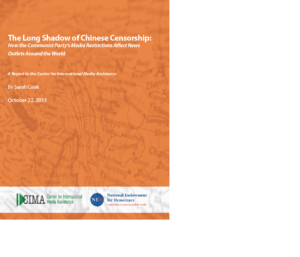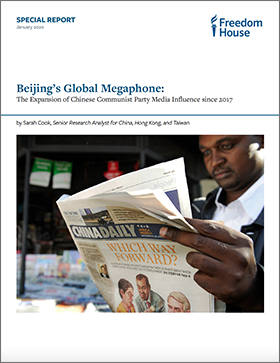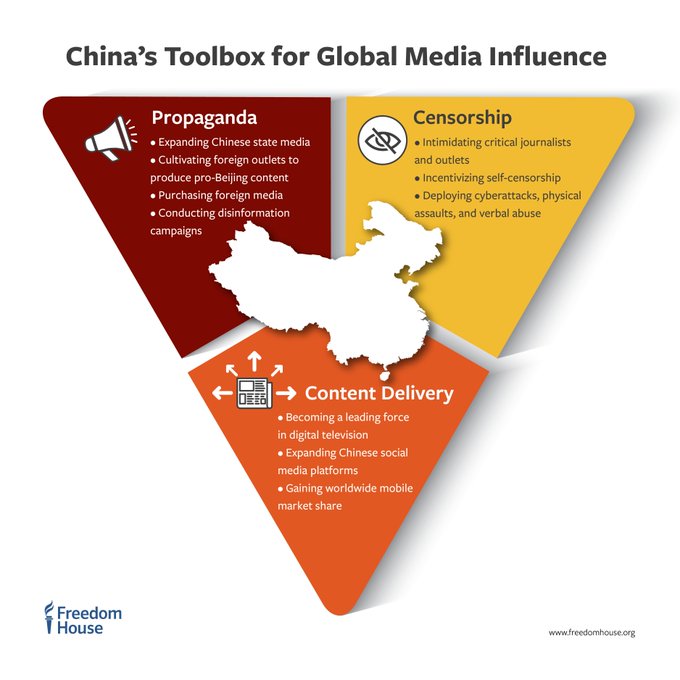 “China is trying to promote itself as an international model,” said Sarah Cook, senior research analyst for China at Freedom House and the author of the report, “Beijing’s Global Megaphone.” That has especially been the case since Xi declared in 2016 that “propaganda reports must extend their tentacles” to reach readers and viewers everywhere.
“China is trying to promote itself as an international model,” said Sarah Cook, senior research analyst for China at Freedom House and the author of the report, “Beijing’s Global Megaphone.” That has especially been the case since Xi declared in 2016 that “propaganda reports must extend their tentacles” to reach readers and viewers everywhere.
“Beijing has a large toolbox for influencing media around the world and its tactics have been evolving, especially since 2017,” Cook said. This includes officials’ increasingly aggressive pronouncements on Twitter and more covert efforts, such as the Russian-style disinformation campaign conducted in Taiwan.
 The report updates and expands on a 2013 study by the same author, The Long Shadow of Chinese Censorship: How the Communist Party’s Media Restrictions Affect News Outlets around the World, published by the Center for International Media Assistance at the National Endowment for Democracy, Freedom House adds.
The report updates and expands on a 2013 study by the same author, The Long Shadow of Chinese Censorship: How the Communist Party’s Media Restrictions Affect News Outlets around the World, published by the Center for International Media Assistance at the National Endowment for Democracy, Freedom House adds.
The Chinese government is carrying out an intense attack on the global system for defending human rights. Decades of progress that have allowed people around the world to speak freely, live without fear of arbitrary imprisonment and torture, and enjoy other human rights are at risk, according to Human Rights Watch’s World Report 2020:
 At home, the Chinese government has created a vast surveillance state in its efforts to achieve total social control. It is now increasingly using its economic and diplomatic clout to fend off global efforts abroad to hold it to account for its repression. To preserve the international human rights system as a meaningful check on repression, governments should band together to counter Beijing’s attacks.
At home, the Chinese government has created a vast surveillance state in its efforts to achieve total social control. It is now increasingly using its economic and diplomatic clout to fend off global efforts abroad to hold it to account for its repression. To preserve the international human rights system as a meaningful check on repression, governments should band together to counter Beijing’s attacks.
In early 2017, the Chinese Communist Party changed its internal security strategy in Xinjiang, escalating collective detention, ideological re-education, and pressure on Uyghur diaspora networks, Harvard’s Belfer Center reports.
This strategy shift was likely catalyzed by changing perceptions of Uyghur involvement in transnational Islamic militancy in Southeast Asia and the Middle East, heightening perceived domestic vulnerability to terrorism, analysts Sheena Chestnut Greitens, Myunghee Lee, and Emir Yazici write in “Counterterrorism and Preventive Repression: China’s Changing Strategy in Xinjiang”, International Security, Vol. 44, No. 3 (Winter 2019/20), pp. 9–47.








